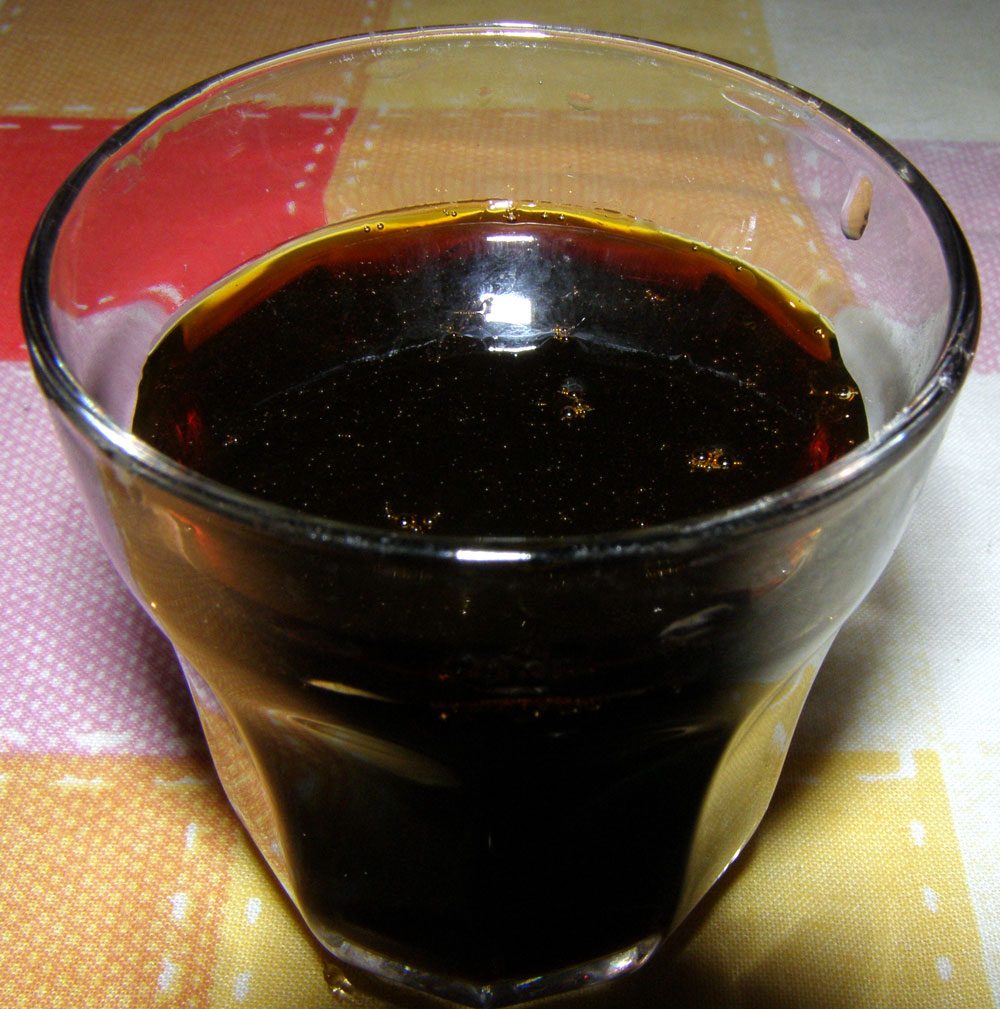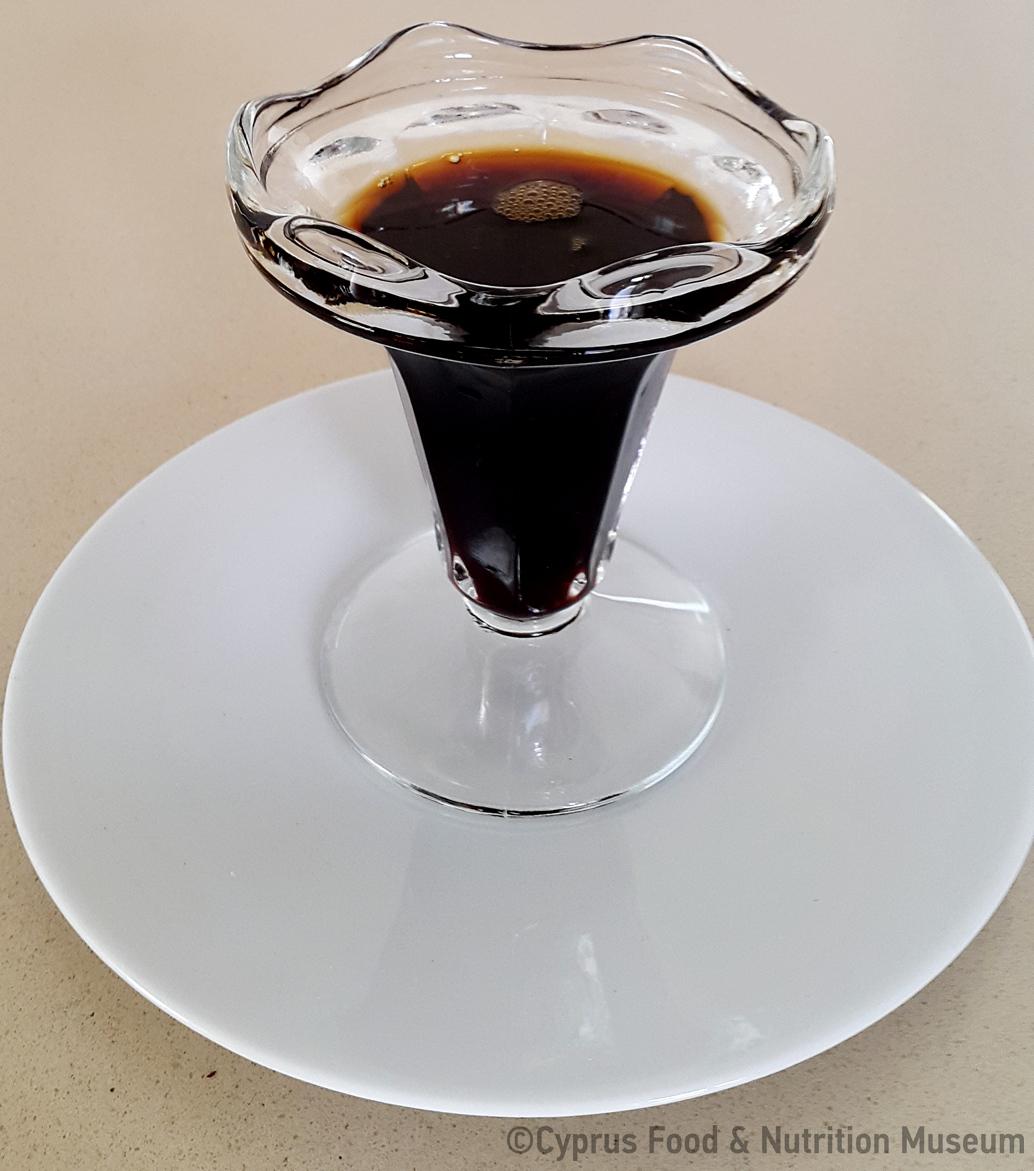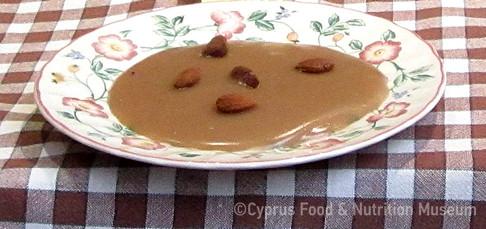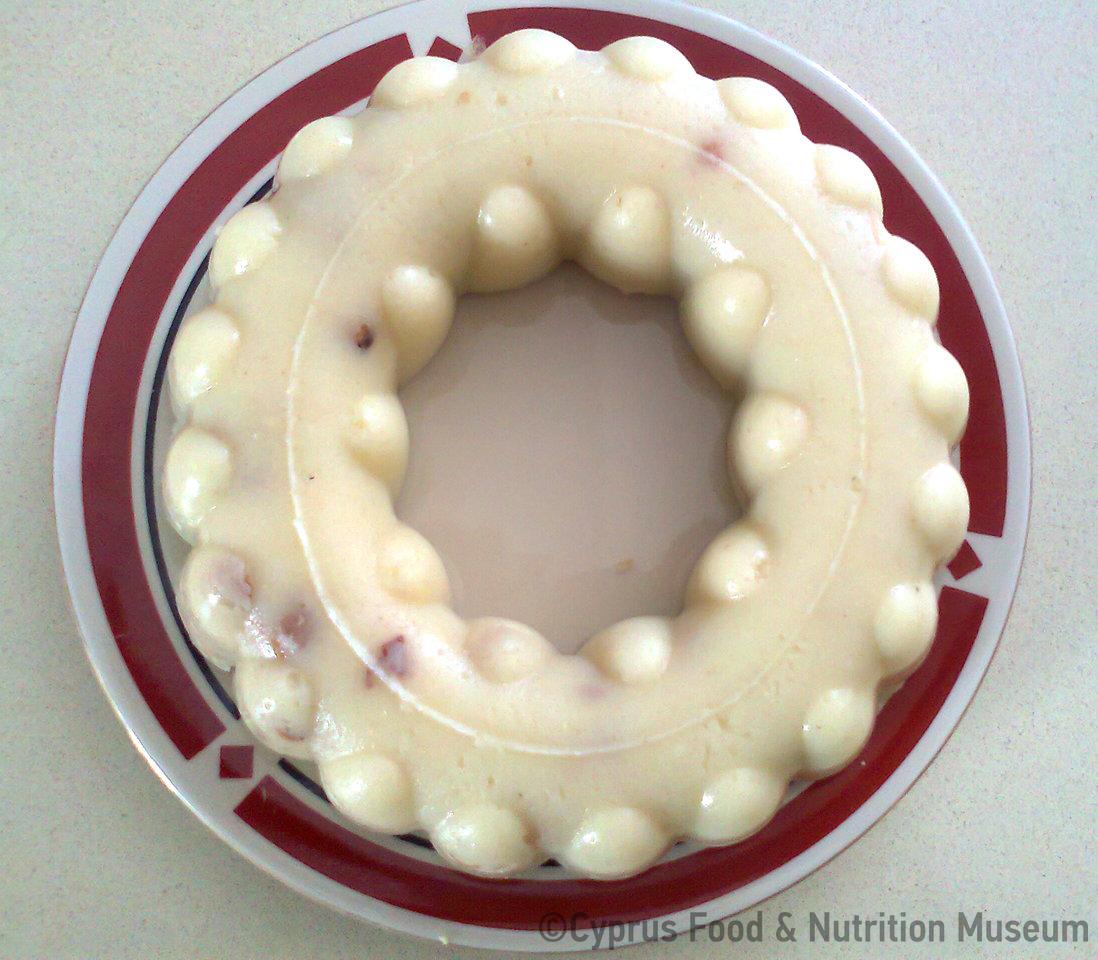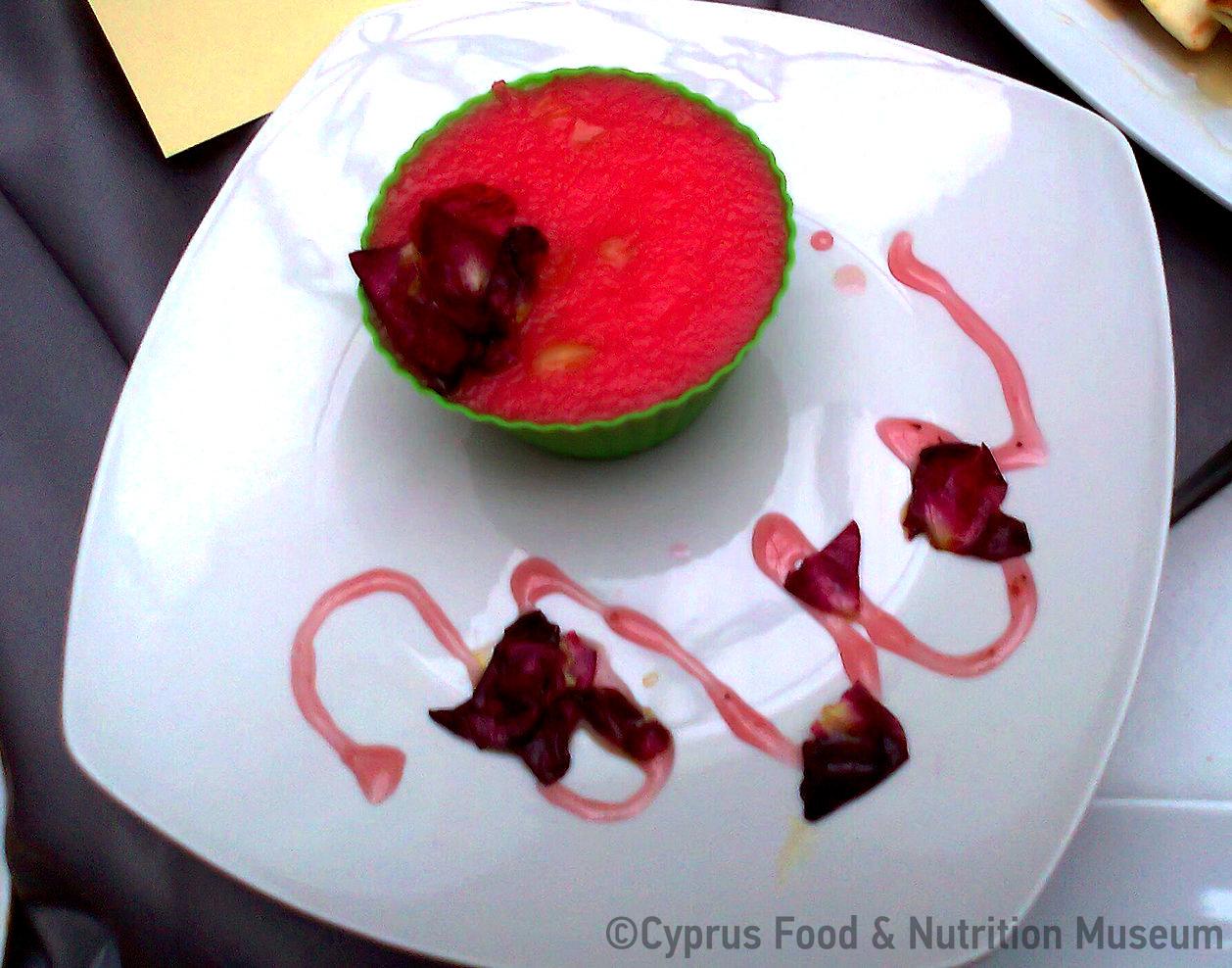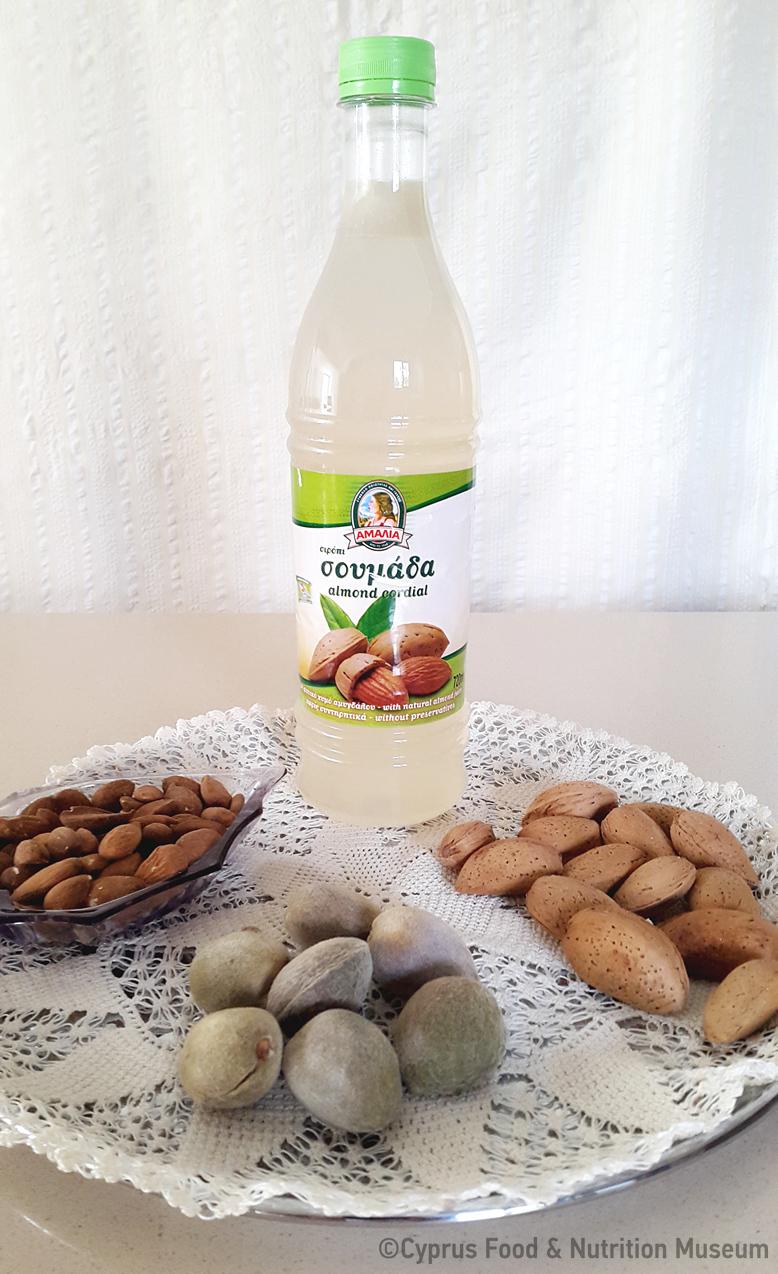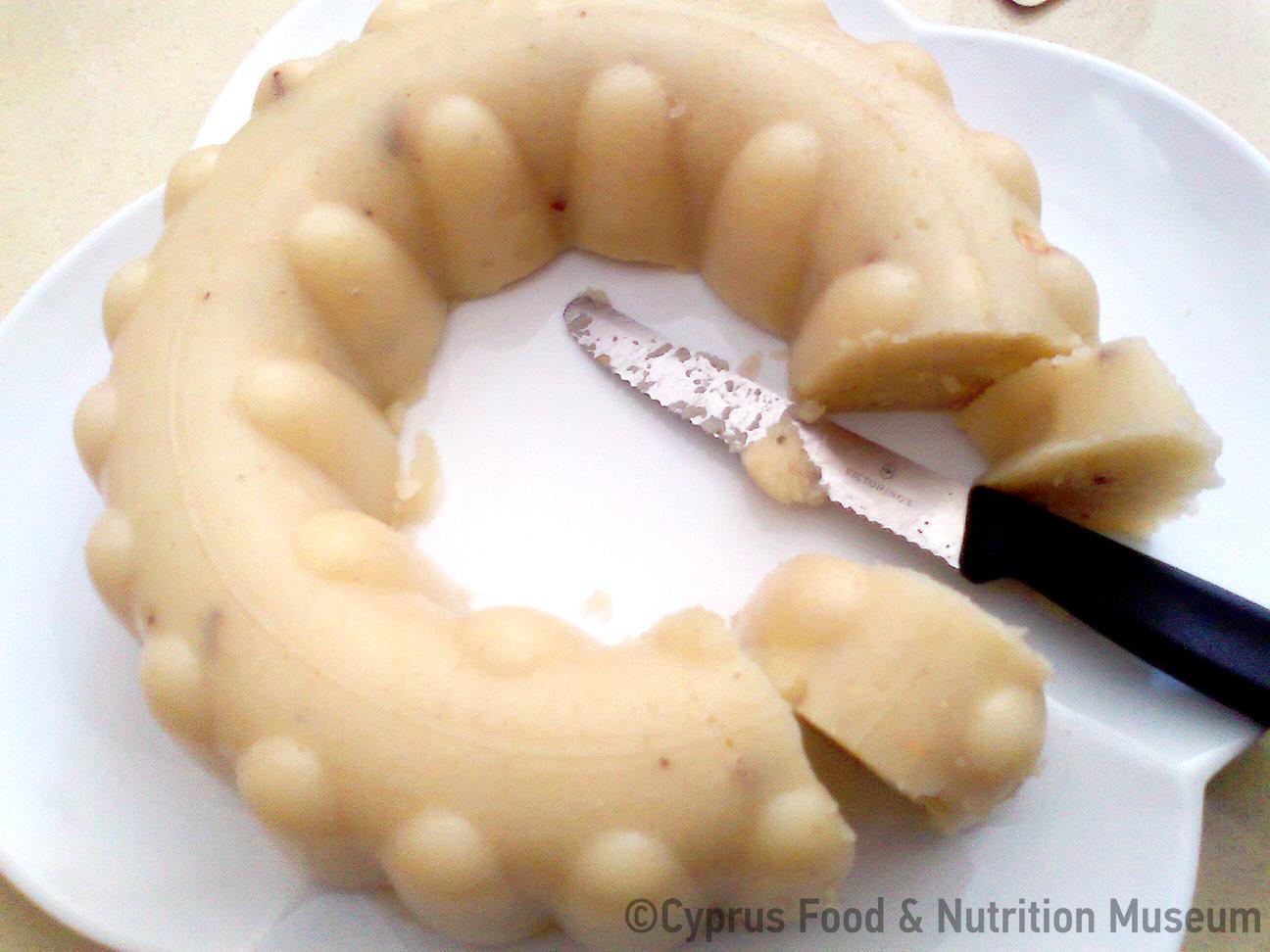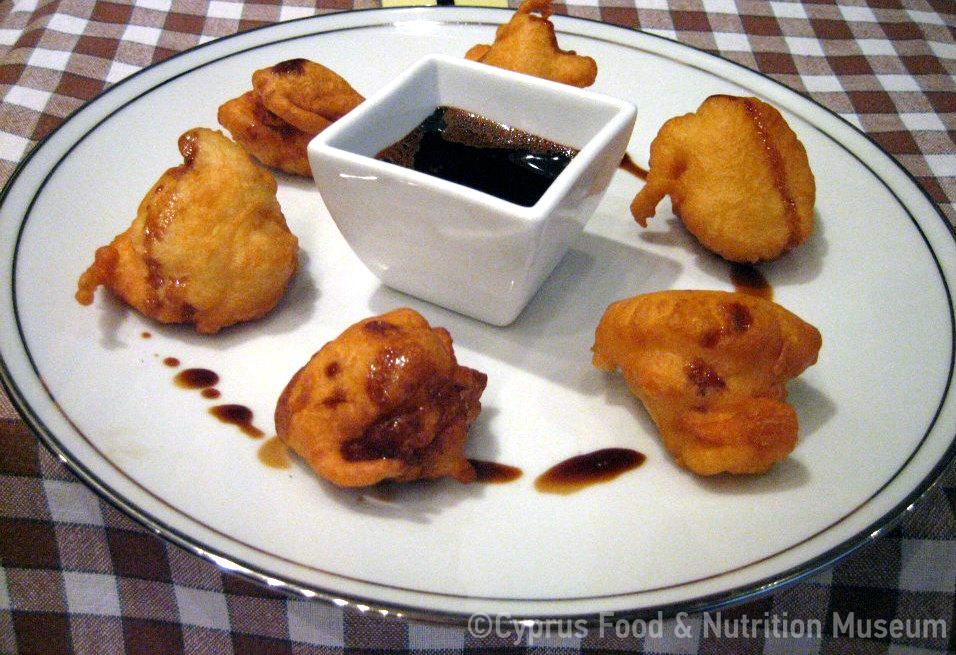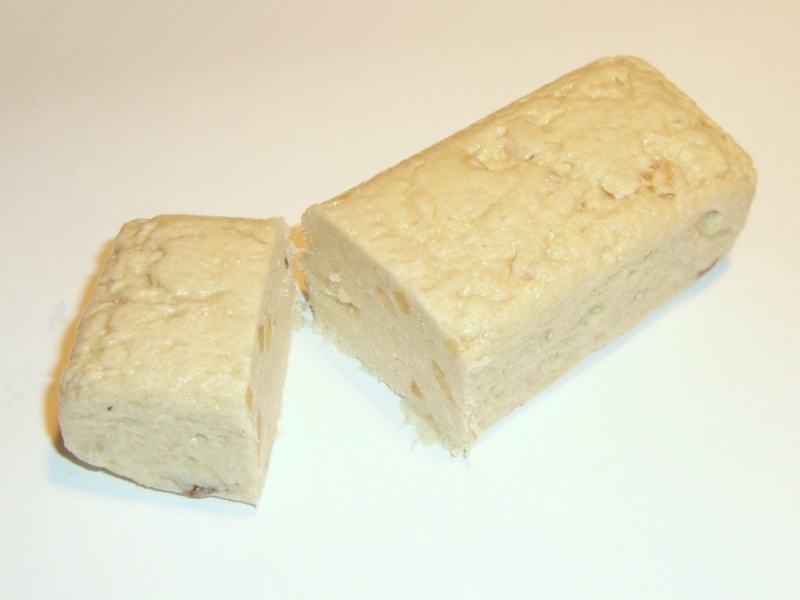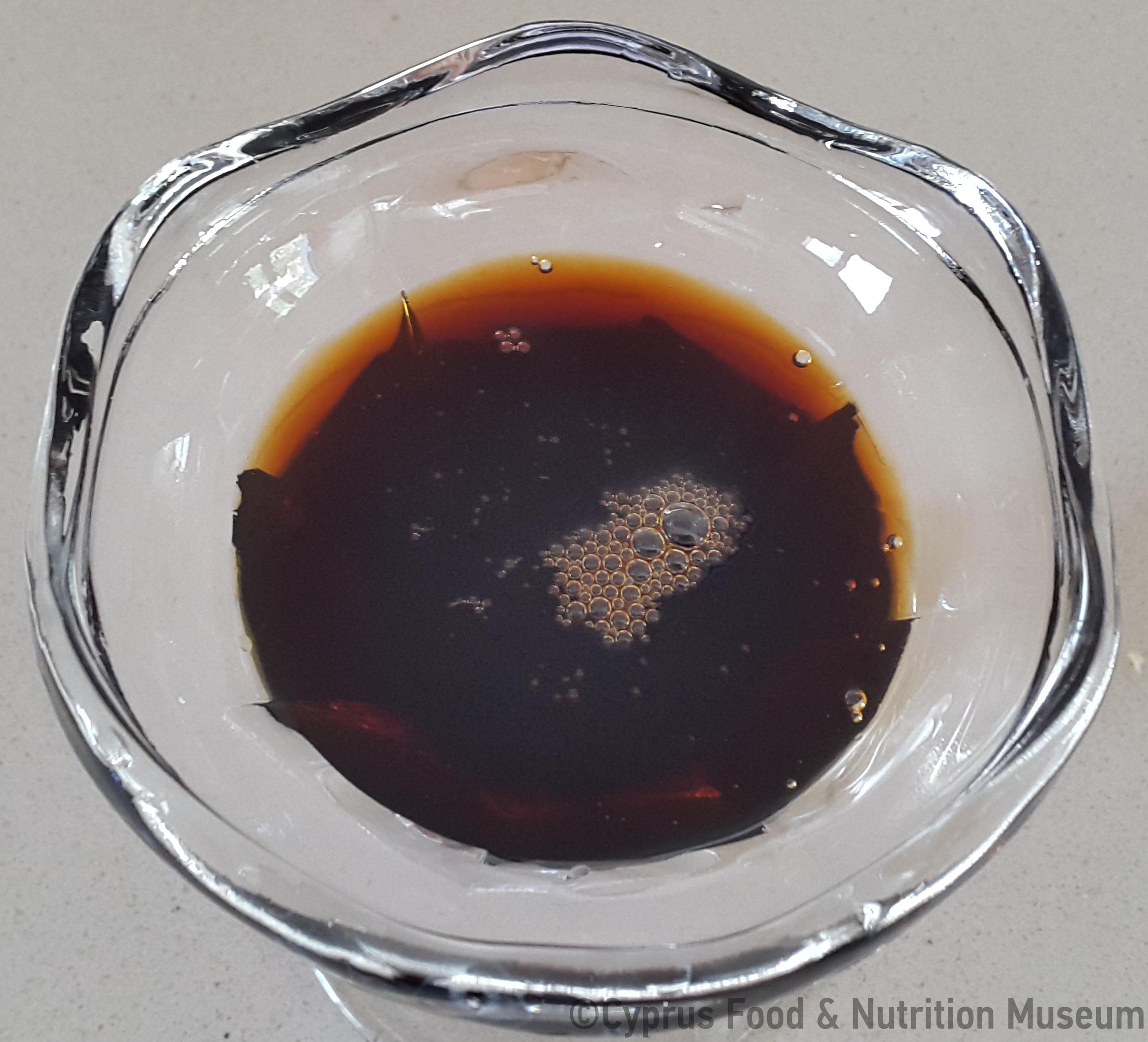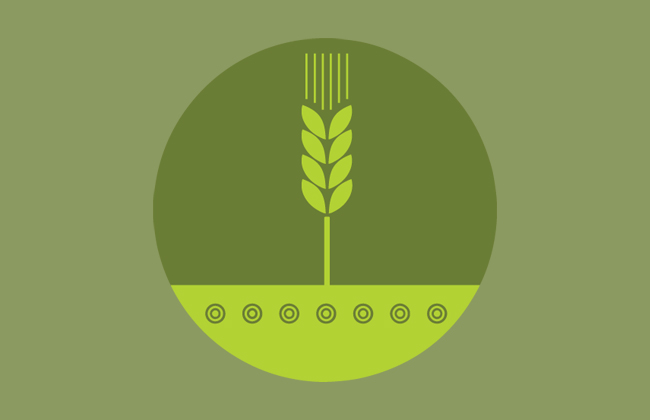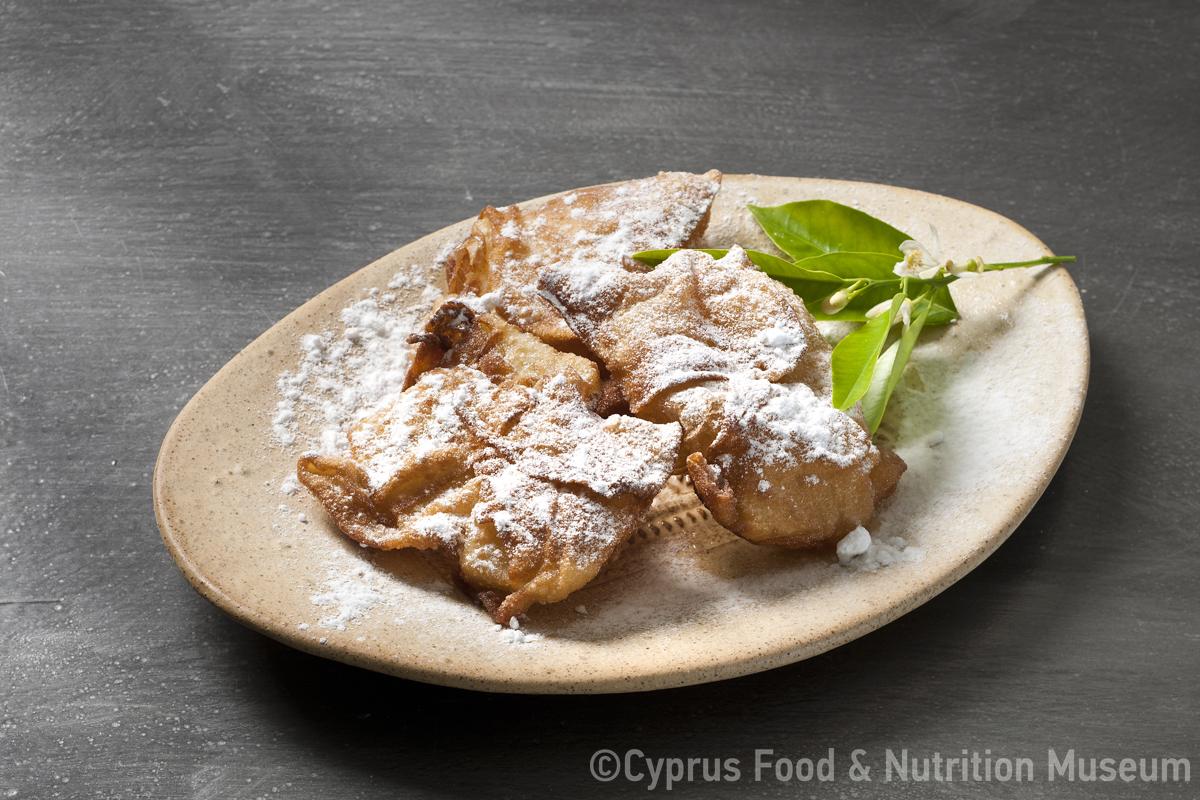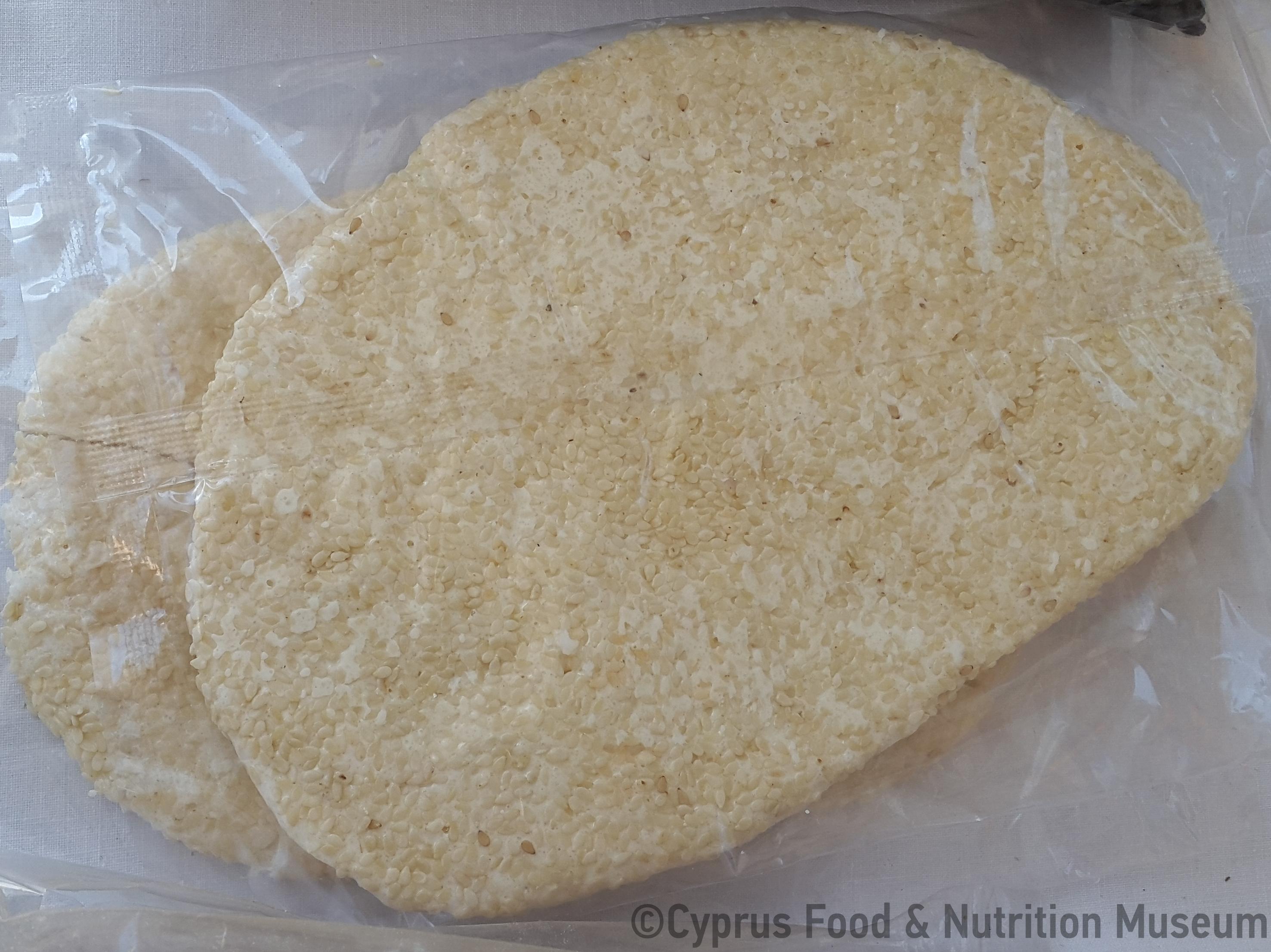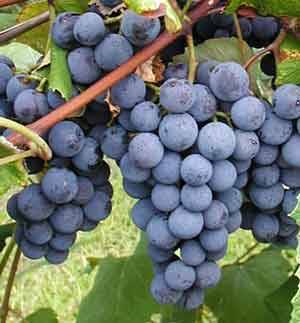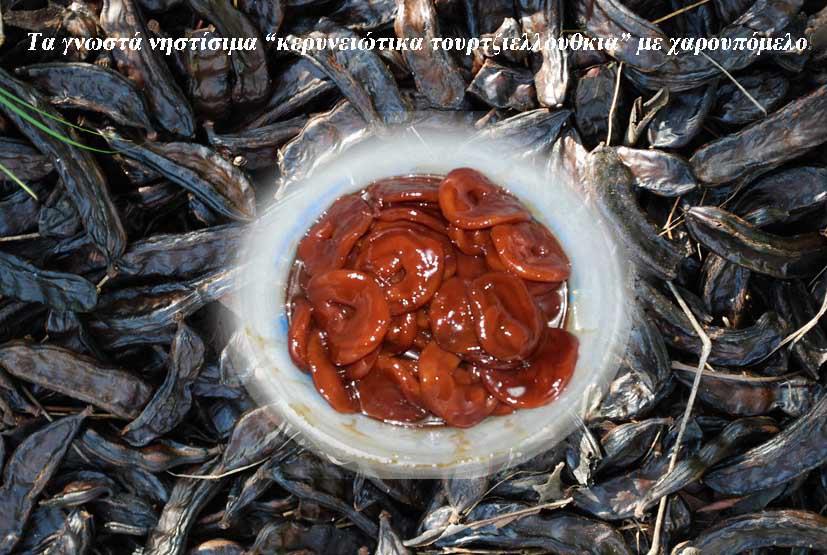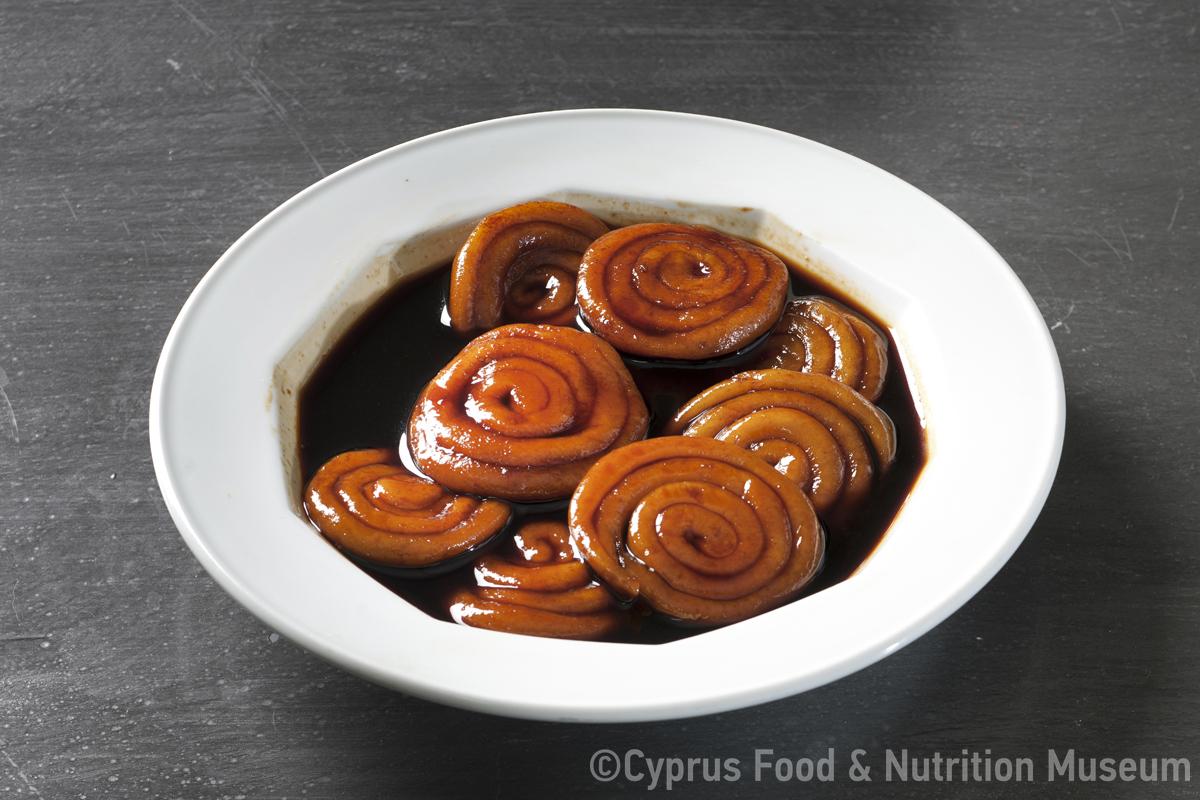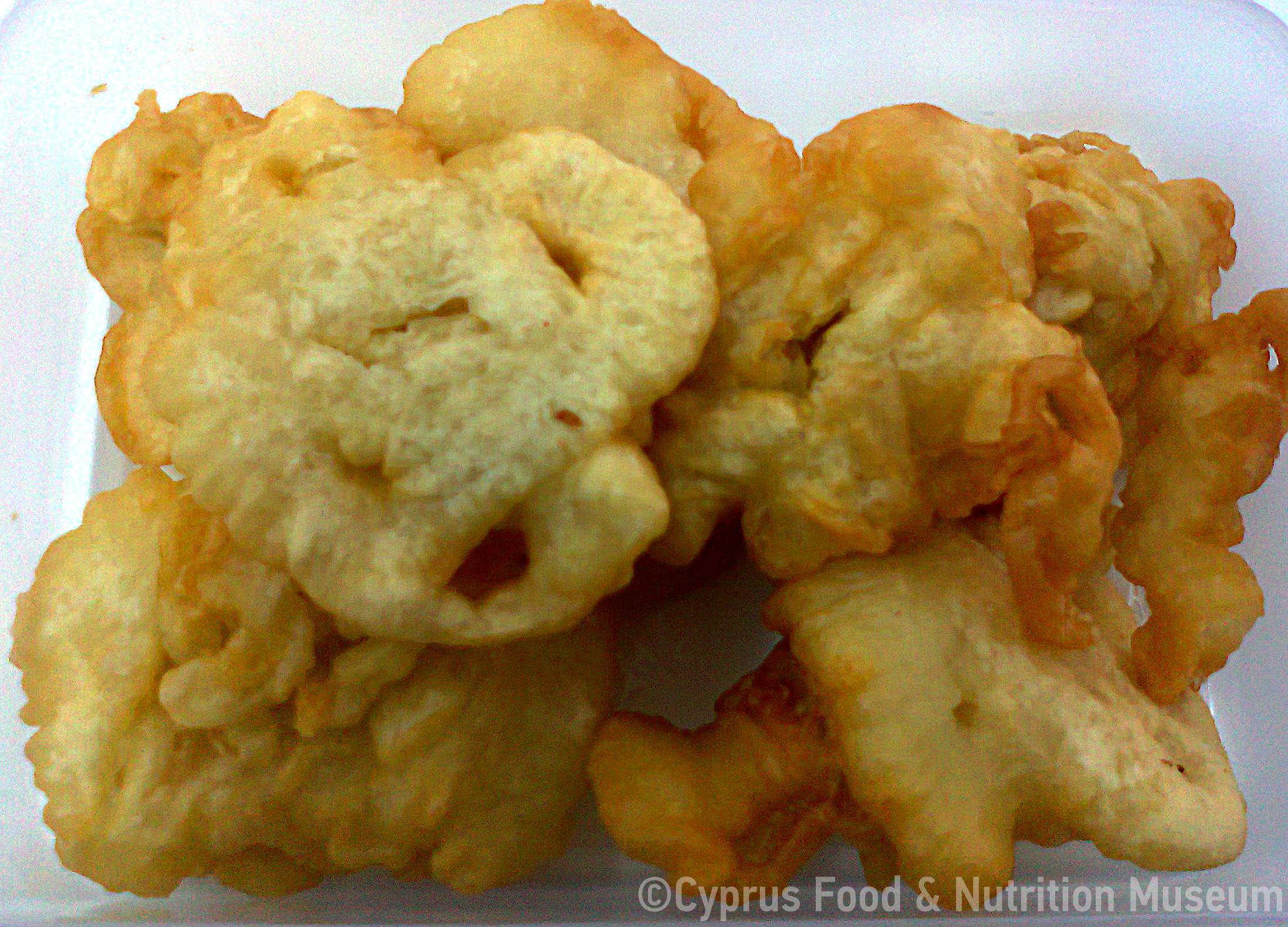In Dora village, Limassol this preparation was made during the feast of Apostle Andreas (Aristi Yiannakou, Dora Limassol).
Name - Recipe
Χαλβάς με πετιμέζι και καβουρδισμένο αλεύρι, πλασμένος σε μπαλίτσες. Halouvas with petimezi and toasted flour, formed into small balls.
Version A'
1 kg of flour
1/2 bottle of epsima
100 g sesame seeds
250gr of roasted almonds
Version B'
2 cups of village flour
1 ½ cups sesame seeds
1 cup almonds, blanched and coarsely chopped
1 cup epsima
1 small cup of water
Version A
Toast the flour and mix it with the epsima. Add the almonds and sesame seeds and mix by hand. Form small balls and serve." (Aristi Yiannakou, Dora village, Limassol)
Version B
Mix the epsima with the water. Toasting the flour: pour half of the flour into a non-stick pan and stir continuously until it turns golden brown. Remove and add the rest of the flour. Toast the sesame seeds and then the almonds in the same way. When they have cooled a little, add the epsima mixture and mix with your hands to make a paste that can be shaped into walnut-sized balls. If desired, substitute the almonds with walnuts. (Kythraiotou 2013, 68)
Toasting.
In the old days this halouva was toasted on the satži (cookware, clay shallow tray with two handles or metal plate (Kypri - Protopapa 2003, 249-250)). You can use a non-stick pan or roast the flour, sesame and almonds in the oven. (Kythraiotou 2013, 68).
Functional and symbolic role
In Dora village, Limassol this preparation was made during the feast of Apostle Andreas
Additional information and bibliography
Extract from an interview with Ms Aristi Giannakou: "Question: Were there any special occasions when the halouva was prepared? Answer: Yes. On Apostle Andreas day in Dora.
Question: Where did you learn the recipe from? Answer: From my mother.
Question: Did you make any changes-modifications to the recipe (ingredients, ratio of ingredients, method of preparation, method of storage, method or means of baking)? Answer: No.
Question: Is this a local recipe, where is it made? Answer: As far as I know, only in Dora they make halouvas this way.
Question: How often do you make halouvas now? Answer: Only on the day of the feast of Apostle Andreas.
Question: How often did you make them previously? Answer: Only on the feast day of the feast of Apostle Andreas."
(Aristi Yiannakou, 45 years old from Dora Limassol).
Kypri Th. - Protopapa K. A. (2003), traditional baking in Cyprus. Its use and importance in customary life, publications of the Centre for Scientific Research, XVIII, Nicosia.
Kythraiotou, F. (2013). Gastronomic guide of Marathasa, Ministry of Education and Culture - Pedagogical Institute, Nicosia.
Oral testimony: Aristi Giannakou, 45 years old from Dora Limassol. Recording: Zenovia Charalambous, October 2010. Edited by Stalo Lazarou.
Zenovia Charalambous, Stalo Lazarou, Petroula Hadjittofi
